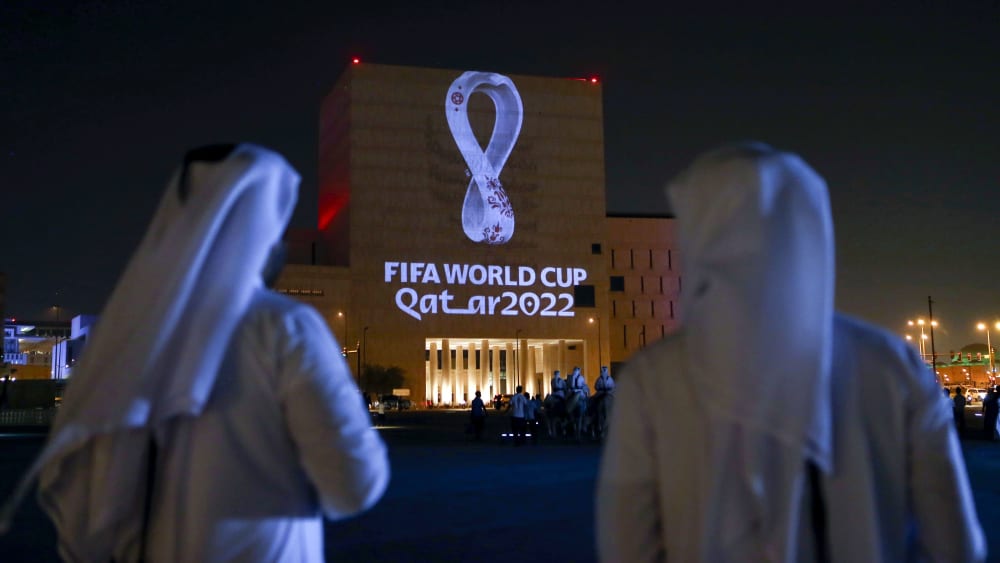With just under a year to go until the World Cup in Qatar.
This coming Sunday, it is exactly one year until the day of the opening match of the 2022 World Cup in Qatar. No tournament in the history of football has been debated so intensely, and especially in Germany with such great reluctance, as this one in the desert state. This week there will be another wave of information and opinions because of the special date.
Unlike previous tournaments, the sporting and technical conditions are virtually a non-issue twelve months before kick-off. Especially as those directly involved, i.e. the associations, their coaches, players and support teams, have obviously come to terms with a winter World Cup. The ball movers expect conditions appropriate to the occasion, which they are very familiar with from training camps with their clubs.
Improvements must not only be driven in Qatar
However, the focus is still predominantly on the human rights situation. It does not make sense to seriously consider a boycott. Rather, the focus must be on using global attention to spur further improvements not only in Qatar, but in the entire Gulf region. For this is part of the truth: only the World Cup and the debate about it have made the broad European public aware of the conditions there.
Football’s biggest event plays the central role in the hosts’ Vision 2030, which aims to transform and open up the emirate economically and socially. With the dubious World Cup double award to Russia (2018) and Qatar, a partnership has been brewing, especially between European professional football and the small, heavily wealthy desert state, which arouses unbroken suspicion, especially among fans in the Western world.
After Qatar’s stunning win, the first questions, even from officials, were not only about the high temperatures in the Qatari summer, but also about a looming alcohol ban. Would English and German visitors be banned from alcohol in 2022? They would welcome all fans, but also ask for acceptance of the local culture, was the polite-diplomatic answer in 2012.
The Qatari government has initiated improvements
Nearly ten years later, the horizon has broadened, far more significant issues than the beer problem have been captured. First and foremost, the situation of migrant workers on World Cup construction sites. Secondly, and this view is only now being sharpened, the threat to people of diverse sexual orientations.
This week, international non-governmental organisations will note the conditions for workers: The Qatari government has introduced reforms and thus improvements. However, implementation still lacks speed and consistency on a day-to-day basis. There is also concern that the human rights situation will deteriorate again as soon as the final whistle blows. This pessimistic expectation is countered by an optimistic approach: Qatar, as independent observers report, is opening the window for a “wind of change” more than a crack with the World Cup and is thus taking on an exemplary role for the entire region.
Progress requires patience, even if it is painful. Accepting this requires a willingness to move closer together – and continued vigilance. This is what the upcoming World Cup has awakened, while political and economic alliances of the Western world with Gulf states usually escape the general public. No matter how much they are worth in billions of dollars.
Football must go, play and address grievances at the same time
The human rights pressure is overriding all the preliminary coverage. This is a good thing. The dialogue must continue. It would be helpful to refrain from self-righteous European posturing in the process. And although the focus is on the host country, it is also important to look at its neighbours. In this way, this World Cup could attain an intercultural and humanistic value beyond Qatar and 2022.
Of course, this will not be possible without stars and bosses expressing their views, preferably in a differentiated manner. The international professional game, with many disciplines, is a beneficiary of the involvement of the Arab states, which are as potent as they are ambitious, in sport. If football is as important as it claims to be, it must be able to do more than just kick: Go there, play and address grievances at the same time, it can.
In this case, too, the game has the fundamental power to connect people of the most diverse origins, to create understanding. No one has claimed that this is always done the easy way.





